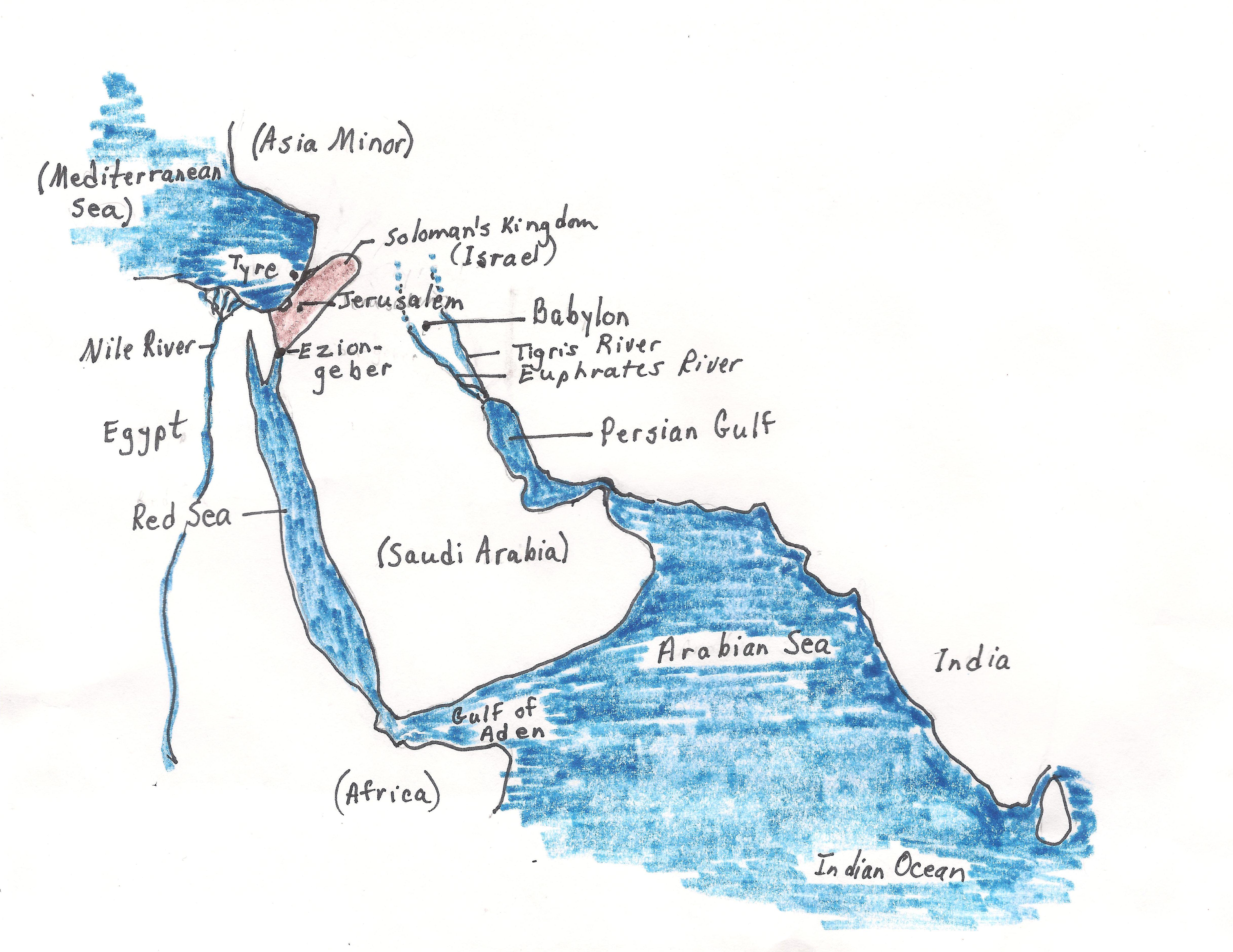“Cast your bread upon the waters, for after many days you will find it again. Give portions to seven, yes to eight, for you do not know what disaster may come upon the land.”
When King Solomon wrote these words, he wasn’t speaking in riddles. His advice was a comparison about making wise investments and getting a return on those investments. King Solomon of Israel and King Hiram of Tyre had formed an alliance and had also developed a friendship. The Israelites had little knowledge of navigating ship on the open ocean, but the Phoenician sailors of Tyre had a long history of ship building and traveling long distances by ships in search of minerals and other natural resources.
King Solomon built fleets of ships at Ezion Geber, an inlet on the northeastern part of the Red Sea that was within the kingdom of Israel at the time. This is one of the ports where Israel sent food supplies and possibly other resources out on three-year long trading expeditions. 
King Hiram provided seamen who were familiar with the sea to help Solomon’s men as they traveled long distances by sea. The sailors traveled to a land known as Ophir, where they traded their cargo for huge amounts of gold. Almug wood, precious stones, silver, ivory, apes, and baboons were also obtained during these trips.
The land of Ophir is one of the Bible’s intriguing mysteries. We do know the distance was great enough to take three years to go to Ophir and then to return to Ezion Geber. A view of a map showing the port city shows that the ships sailed south through the Red Sea, but they could have then taken a number of routes after entering the Gulf of Aden. South Africa, India, Central America, and South America are a few of the places that have been suggested as the land of Ophir. Ships may also have sailed from the Mediterranean Sea.
It is likely that Solomon’s advice to cast bread upon the waters and divide it into seven or eight portions was referring to his fleet of ships that were sent out to return with treasures after many days. Even if every ship didn’t make it back to port, there could still be a good return on their investment. Solomon wisely decided not to put all his trading resources into one ship.
About a hundred years later, another Israeli king built a fleet of ship in Ezion Geber to go out in search of gold and other resources. With neither the benefit of experienced Phoenician sailors to guide them nor the blessings of God, the entire fleet wrecked before they got started.
The sailors of Tyre seemed to remain the world’s experts in navigating the oceans for hundreds of more years. For the most part, they shared their expertise with other nations cautiously, along with their maps of the places they had been. They probably discouraged competition by starting rumors about falling off the edge of the earth or being eaten by giant sea monsters if the ships went too far.
A question worth investigating is how extensive was the navigation and exploration of post-Flood survivors? Did early civilizations engage in voyages across the Atlantic and the Pacific? Does the current paradigm that early humans evolved from ape-like animals, emerged from caves, and gradually learned the skills necessary to explore the earth really fit the facts about very early civilizations?
References: Ecclesiastes 11:1-2; 2 Chronicles 8:17-18; 2 Chronicles 8:21; I Kings 9:26-28; I Kings 10:22; 2 Chronicles 20:35-37.